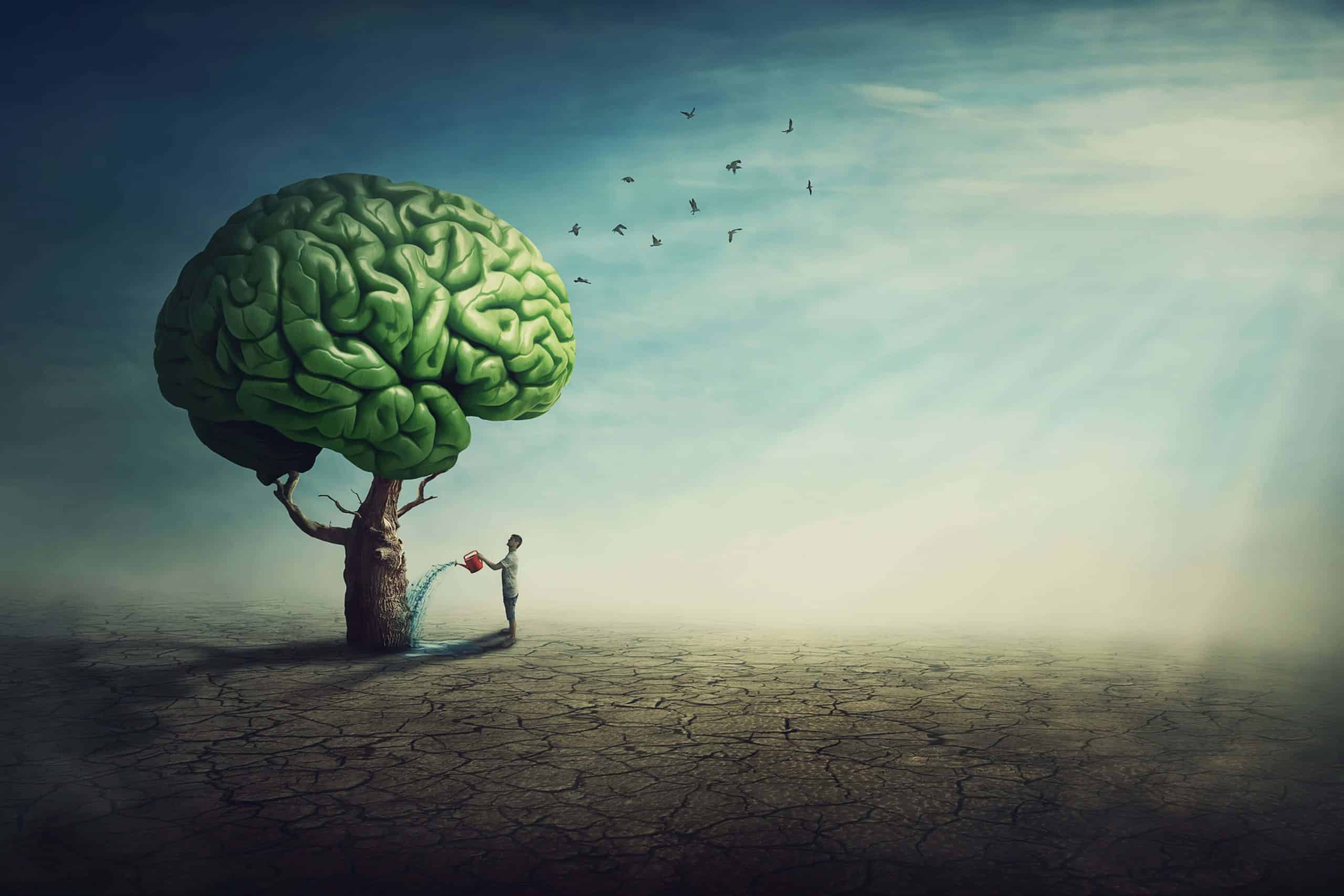Medically Reviewed by Dr. Mohammed Saeed, MD.
Drug or alcohol use makes long-lasting changes to the brain – altering the way the brain functions by affecting the regions responsible for incentive, learning, memory, mood, and behavior. Substance abuse can change both the chemistry of the brain and its physical structure. Damage may be caused directly by the toxic effects of drugs and alcohol or as a consequence related to drug use (seizures, asphyxiation, respiratory arrest, hypoxic brain injury from overdose, traumatic brain injury because of accidents, or risky behavior when high, etc.).
The Brain, Drug Use, and Recovery
The human brain adapts to the changes forced on it by substance abuse, leading to physical addiction. When the substance is removed, the brain is forced to adapt again, leading to withdrawal symptoms. This adaptability and flexibility make the brain capable of self-repair, and this trait is called neuroplasticity. It is what allows you to learn new skills throughout your whole life.
Neuroplasticity is a double-edged sword — allowing the brain to adapt to the drug, thus causing addiction, and then allowing the brain to heal itself by “rewiring” neural connections to bypass some of the areas damaged by drug use or injury. Psychologically, research shows that the brain can “unlearn” behaviors that lead to continued addiction. During addiction recovery, the brain rebuilds lost or damaged connections and recovers control over impulses and cravings.
Addictive drugs mess with the neurotransmitter dopamine, part of the brain’s reward pathway. Often called the “feel-good” chemical, dopamine affects the areas of the brain associated with pleasure and decision making. Drugs and alcohol cause your brain to release more dopamine than it normally does. Tolerance may develop with continued use as naturally produced dopamine levels decrease, forcing the user to take more of the substance to achieve the same effect. In time, the addictive behavior becomes something that must be done to avoid withdrawal symptoms. Neuroplasticity makes maintaining addiction the most natural course of action.
How to Repair Your Brain After Drug Use
Once addiction is recognized and broken through detox and therapy programs, the healing of the brain can be encouraged by:
- Staying Clean – Studies show that after a year of treatment and recovery, the brains of the patients showed a significant increase in dopamine proteins.
- Meditating – Through mindfulness meditation, people living with substance abuse disorders can learn healthier ways to respond to cravings, triggers, and complicated emotions. The pathways in the brain that trigger relapse are “retrained” by practicing mindfulness, helping prevent further damage.
- Keeping Your Brain Busy – Learning new things or doing something mentally challenging provides mental exercise distraction.
- Keeping Your Body Active and Healthy – Exercise and a good diet will help heal the body, mind, and spirit.
Some recommended brain healing nutrition options include:
- broccoli (an excellent source of vitamin K and antioxidants)
- berries (extremely rich in antioxidants and phytochemicals known to improve learning, thinking, and memory functions, and also are relatively low in sugars, making them one of the healthier fruits available)
- celery (rich in luteolin — a chemical that minimizes brain inflammation — and an excellent source of vitamin K and antioxidants)
- coconut oil (rich in ketones and lauric acid)
- garbanzo beans (a rich source of magnesium that strengthens the activity of brain cell receptors and increases blood flow to the brain)
- grass-fed beef (an excellent source of vitamin B12)
- nuts and seeds, eaten raw or used as cold-pressed oil (high in amino acids, fiber, and healthy omega-3 fats, phytosterols, B vitamins, antioxidants, and zinc)
- turmeric (high in curcumin, a powerful anti-inflammatory and antioxidant that can prevent neuron damage, boost memory and improve the regeneration of new brain cells)
Humans are resilient, and the body and brain were designed to be able to heal themselves. Certain forms of treatment can augment this process and enhance neurological recovery. For those with a substance use disorder, seeking help for addiction and stopping the use of addictive substances will help prevent and even heal some of the neurological consequences of substance abuse. Recovery will allow you to take back not only your physical health but also your mental health and overall well-being.
Unlike other organs, the brain is designed to change in response to events in the real world. Addiction is a learned response, but the ability of the brain to adapt allows for the possibility of recovery.
Into Action Recovery Centers takes pride in providing a high level of treatment and a holistic approach to recovery for those who suffer from addiction. Our comfortable facility is designed with the client’s needs foremost in mind. Our staff includes master’s level counselors, licensed chemical dependency counselors, 24-hour nursing professionals, a staff psychiatrist, a staff chef, and direct care personnel. Our counseling staff provides individualized treatment and care for our clients with an emphasis on tailoring treatment to the specific needs of each individual. Additionally, our staff provides family counseling, relapse prevention, life skills, and grief and trauma counseling.
Into Action Recovery Centers provides an abstinence-based program and all of our staff members have a strong understanding of the recovery process through personal experience. Sharing the process involved in living a drug and alcohol-free life is something we are passionate about. We offer free aftercare for the men who complete our program and have a strong alumni network that remains active in the community. We also offer other amenities, such as dietician-prepared meals, mindfulness-based meditation training, outings, and fitness training.




